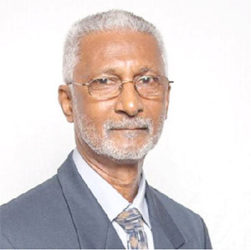By Louis Holder
The future begins now is an expose of a vision of the future. It doesn’t have to be gloom and doom if the root cause of the problem is understood and corrective action taken. Man’s problems are of his own making. Man has overpopulated the planet beyond sustainability. As a result, the environment has become polluted past repair. Climate change cannot be reversed, only slowed, without drastic reductions to world population.
Our political systems are popularity contests where those wishing to govern over us make promises that have short-term feel-good effects but long-term detrimental ones.

Labour unions and politicians have defied the market and pushed wages to levels higher than their value resulting in labour being overpriced and thus expendable, redundant and obsolete.
Climate change is directly related to overpopulation. Besides reducing the amount of greenhouse gasses emitted in the atmosphere, which is where our efforts are concentrated, we must also reduce population by reducing the birth rate below the mortality rate. For if we don’t do it, the planet will self-correct at great anguish.
The massive storms, floods, droughts, and fires occurring with greater frequency are just a prelude of things to come. Unfortunately, the poor and vulnerable will bear the brunt of this self-correction.
Labour is overpriced and yet the politicians, especially in the US, are proposing to increase its compensation even higher. Although admirable, it is the wrong solution to income inequality. It will hasten the descent to oblivion. According to a BBC report, a typical industrial robot cost around US$5 per hour. So, if you’re earning more than that in a manufacturing job, there is a good chance your job will be performed by a non-human in the near future. The labour-reducing technologies on the horizon are awesome. Artificial Intelligent (AI) machines are actually being programmed to learn the way young humans do. When AI is realized, it would complete the obsolescence of human labour.
So, what to do? Beside the environment taking its toll and reducing the population, the rest are without jobs and means to support their families. The market valued our labour at much less that we were being paid which caused our replacement. If that’s the root cause, and it’s undisputedly so, then the solution is to remove all restrictions to the market making its valuations on each skill contributions.
When value and cost/wage are brought into equilibrium, sanity is returned and human labour is employed again. The problem with the market is that it doesn’t share our value system and market-determined wages may not be considered fair. That’s where government steps in and through transfer payments, makes sure that everyone has a living wage.
This is not the case in the long-term. Then, governments’ roles would decrease leading to them being smaller in terms of responsibilities. Labour costs, though lower, would be in sync with cost of living levels thereby giving workers a comfortable standard of living. It would be like the old days in British Guiana when a monthly take-home pay of $35 provided the physiological needs (food, shelter and clothing) for a family of four. The point is that low wages are not disincentives to work if the cost of living is comparatively low.
An alternative and second-best solution is now in its nascent debate form having been introduced by a movement in Switzerland. It is Universal Basic Income where government doesn’t wait for the functioning of the market, but gives everyone a living income. If one wants finer things in life, one could augment this minimum income with wages from a job. The reason this proposal is second-best is it doesn’t stop automation, while imposing a greater cost on society.
The same frailty applies to what is emerging to be US President Trump’s approach to saving American jobs. But the common element of all these proposed solutions is that in the short-term future, governments have a larger role to play in regulating society, which is at total odds with conservative ideology of smaller governments.
The hope is that this expose would shed some light on the fear gripping the US and Europe and why that fear is not without a sound foundation. Guyana and other developing countries can avoid the pitfalls of these developed countries and delay the onset.
But instead of casting blame on innocent immigrants, as the western developed countries are doing, they should realize that their worst enemy is within, wanting more than contributing.





